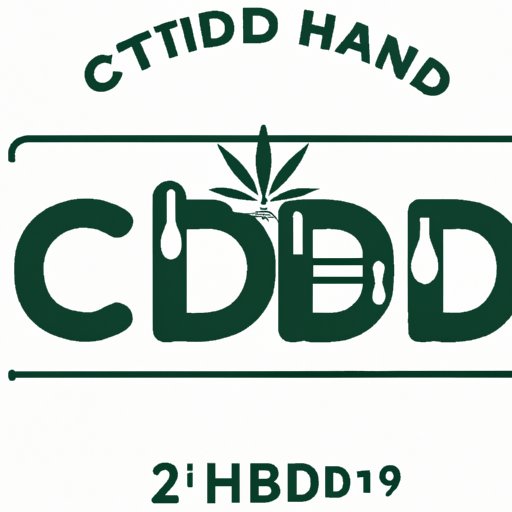I. Introduction
CBD, short for cannabidiol, is a non-psychoactive compound found in the Cannabis sativa plant. In recent years, CBD has surged in popularity, with many people using it as a natural remedy for various medical conditions and overall wellness. One of the potential benefits of using CBD is its ability to enhance appetite, particularly for individuals experiencing appetite suppression due to certain conditions or treatments. Let’s explore the science and personal experiences behind using CBD for hunger enhancement.
A. Definition of CBD
CBD is a cannabinoid compound found in the Cannabis sativa plant. Unlike its psychoactive counterpart THC, CBD does not cause a “high” sensation and is not addictive. CBD is often extracted from the hemp plant and can be consumed in various forms; oils, capsules, gummies, and topical products are just a few of the most popular.
B. The rising popularity of CBD products
With the increasing acceptance and legality of cannabis-derived products, there has been a surge in CBD use. CBD is often marketed as a natural remedy for anxiety, pain relief, and overall wellness. Many people also use it to treat conditions such as epilepsy and multiple sclerosis.
C. The need for increased appetite and how CBD can help with it
For individuals who experience appetite suppression due to certain medical conditions or treatments, CBD may be able to help increase their hunger. Lack of appetite can cause malnourishment and overall health issues, making it crucial to find effective solutions. CBD has been studied for its potential to increase appetite and may provide promising results for those who struggle with this issue.

II. The Science of CBD and Appetite: How Cannabidiol May Boost Your Hunger
A. Explanation of CBD receptors in the body
The human body has an endocannabinoid system (ECS) responsible for regulating various functions such as sleep, mood, and appetite. The ECS has two cannabinoid receptors – CB1 and CB2 – that interact with endocannabinoids produced by the body. THC primarily interacts with CB1 receptors, which are primarily found in the brain, while CBD does not directly bind with either receptor.
B. How CBD interacts with the hypothalamus and the limbic system
The hypothalamus is a gland located in the brain responsible for regulating essential functions such as temperature, hunger, and thirst. The limbic system is a group of structures in the brain responsible for emotions, behavior, and motivation. Studies have found that CBD can interact with both the hypothalamus and the limbic system, potentially increasing hunger and appetite.
C. Studies and research on the appetite-boosting effects of CBD
Research on the effects of CBD on appetite is still in the early stages. However, a study conducted on rats found that CBD enhanced their appetite by increasing the level of ghrelin, a hormone responsible for regulating hunger. Another study published in the Journal of Psychopharmacology found that CBD might be useful in treating individuals with eating disorders and mood disorders.
III. Easing the Side Effects of Certain Conditions: Exploring CBD’s Potential to Increase Appetite
A. Conditions that cause appetite suppression
Several medical conditions can cause reduced appetite, including cancer, HIV/AIDS, chronic pain, depression, and anxiety. Moreover, undergoing various treatments can cause lack of appetite or nausea, such as chemotherapy and radiation therapy.
B. Use of CBD as a treatment for these conditions
Several medical experts suggest that using CBD may relieve the side effects caused by medical conditions and their treatments. Animal studies show that CBD can increase appetite, making it a potential treatment for individuals experiencing appetite suppression. Moreover, CBD may also help with anxiety and depression, which are two common conditions that contribute to appetite loss.
C. Personal testimonials from individuals who have used CBD for appetite enhancement
Many individuals report experiencing an increase in appetite after consuming CBD. People with cancer, in particular, mention experiencing a marked improvement in appetite after using CBD products regularly. Moreover, some individuals say that using CBD edibles, such as gummies or chocolates, is particularly helpful because they can help suppress nausea and increase hunger simultaneously.
IV. CBD Oil and Hunger: Can Cannabidiol Really Make You Hungry?
A. Information on how CBD oil is derived and consumed
CBD oil is one of the most popular forms of taking CBD. Producers first derive CBD oil from hemp plants and then process it to remove the plant’s waxes and chlorophyll. CBD oil can be consumed through tinctures, capsules or added to foods and beverages that people consume to boost appetite.
B. The role of CBD in activating ghrelin, the hunger hormone
Ghrelin is a hormone that contributes to increasing appetite and making a person feel hungry. When a person eats a meal, the hormone levels decrease, and the person usually feels satiated. Studies show that CBD enhances the production of ghrelin, making a person feel hungrier and subsequently increasing food intake.
C. The possible adverse effects of using CBD products for hunger enhancement
Excessive consumption of CBD oil or other CBD products can have negative side effects, including fatigue, nausea, and increased appetite. Doctors recommend that people stick to the designated doses prescribed on the packaging of CBD products and avoid consuming high levels of CBD oils to combat side effects. Furthermore, it is crucial to talk to a doctor before incorporating CBD products into your diet.

V. Appetite Boosting Effects of CBD: A Comprehensive Review
A. Overview of different studies on CBD and appetite
A review of studies published in the Neuropharmacology journal analyzed the effects of cannabinoids on appetite. The authors found that while THC can increase appetite, CBD can only increase appetite to a limited extent. However, studies show that combining THC and CBD can result in amplified hunger and increased food intake.
B. The effectiveness of CBD in treating appetite-related medical conditions
Studies demonstrate that CBD can help with appetite-related medical conditions such as nausea, vomiting, and compromised appetite due to cancer treatments. Additionally, research suggests that CBD can improve the overall well-being of people who have eating disorders, such as anorexia and bulimia.
VI. The Connection Between CBD and Hunger: How can CBD Products Enhance Appetite?
A. The importance of understanding how CBD affects hunger
Understanding the role of CBD in the human body helps to know how CBD affects hunger. It is necessary to know that while CBD has the potential to boost appetite, it should not be relied upon solely to regulate food intake. CBD works best as a complementary treatment for medical conditions that cause appetite suppression.
B. The best CBD products for appetite enhancement
The most effective CBD products for appetite enhancement are those that contain a full-spectrum CBD, including other beneficial compounds in the hemp plant such as terpenes and flavonoids. Products such as CBD gummies, capsules, and tinctures are also recommended to help with appetite enhancement as they are easy to consume and adjust doses.
C. The recommended dosage for CBD products
Dosage is an essential factor to consider when using CBD for appetite enhancement. It is highly recommended to follow the manufacturer’s label and adhere to the prescribed dosage of CBD products. Furthermore, it’s best to begin using CBD with low doses and gradually work up as needed to ensure the desired effect is achieved and negative side effects are avoided.
VII. CBD and the Endocannabinoid System: Understanding the Role of Cannabidiol in Hunger Regulation
A. Explanation of the endocannabinoid system
The endocannabinoid system (ECS) is responsible for regulating various essential functions in the human body, including sleep, mood, and appetite. It works by releasing endocannabinoids to activate CB1 and CB2 receptors and maintain balance or homeostasis.
B. How CBD interacts with the system to enhance appetite
CBD interacts with the endocannabinoid system by activating the CB1 receptors present in the hypothalamus and limbic system. These receptors are responsible for regulating appetite, and the activation of these receptors by CBD can result in increased appetite. Furthermore, CBD can interact with the ECS to reduce anxiety and depression, two conditions that contribute to appetite loss.
C. The potential of CBD to impact metabolism and digestion
CBD has shown to have the potential to impact metabolism and digestion positively. Some studies suggest that CBD can alter the way the body processes nutrients, particularly fatty acids. Moreover, research shows that CBD acts as a digestive aid that helps regulate bowel movements.

VIII. CBD for Weight Loss and Appetite Enhancement: Separating Fact from Fiction
A. Common misunderstandings about CBD and weight loss
Many people believe that CBD can help with weight loss, but there is little scientific evidence to support this theory. While CBD can help increase appetite, it does not necessarily lead to weight gain. However, combining THC and CBD has been shown to increase food intake and result in weight gain.
B. The benefits and limitations of using CBD products for weight regulation
Using CBD products may be beneficial for individuals who are experiencing side effects caused by medical conditions and treatments that cause appetite suppression. Moreover, CBD can help reduce anxiety, which can diminish a person’s appetite. However, CBD products may not be an effective solution for individuals who are trying to lose weight.
C. The need for further research and regulation on CBD products
Research into CBD is relatively new, and the long-term effects of consuming CBD products are not yet known. Moreover, the lack of federal regulation means that the CBD market is prone to scams and mislabeling. The need for further research and regulation on CBD products is crucial to ensuring that people receive safe and effective treatment.
IX. Conclusion
of main points
CBD is a non-psychoactive compound found in the Cannabis sativa plant and has been studied for its potential to increase appetite. CBD works by activating CB1 receptors present in the hypothalamus and limbic system, resulting in an increased feeling of hunger. Additionally, CBD may help reduce anxiety and depression, both of which can contribute to appetite loss.
B. Final thoughts on the potential of CBD for increasing appetite
CBD has promising potential for appetite enhancement, making it a potential treatment for individuals experiencing appetite suppression due to certain medical conditions or treatments. However, further research is necessary to gain a better understanding of CBD’s effects on appetite and to establish safe and effective dosages for long-term use.
C. Future outlook on the use of CBD products for medical purposes
The use of CBD products for medical purposes is likely to continue to grow due to its various benefits, including appetite enhancement. However, it is important to ensure that products are adequately tested and regulated to maintain safety standards.
